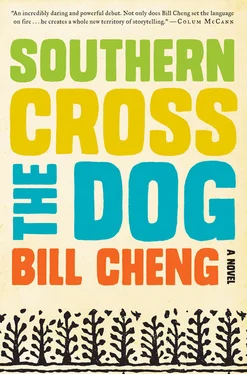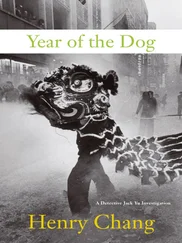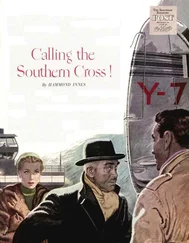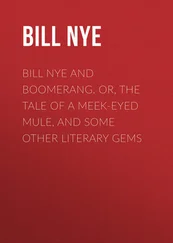Bill Cheng
Southern Cross the Dog
When I was a baby child, they put the jinx on me.
IT WAS IN MY DRINK and food and milk. And when I ran, it heavied in my bones and when I sang, it stopped up my throat and when I loved, it let from me, hot and poisonous.
I saw it in my daddy, the hard lines of his face, that uneasy lope — how in his years he didn’t lift his feet, but slid them, soles across this gritted earth. It settled in my mama, trembled her voice and blanked her eyes. My brother, Billy, locked it inside him and it carried him low into that deep earth, silting then into the river and dew and air, in the moths and bee catchers, borne skyward and, as will be, lowed again, into earth again again.
It’s dusking.
There goes the sun.
There goes sky and cloud and light, taken into that black horizon. And I know I am bad crossed. I see its line. It reaches up, arcs. It cuts through me. It draws me on and dogs me down to that place where I am bound.
And when it is I borne down, my eyes and mouth stitched with gut, when they take my balls and brain and heart, and that deeper black claims me wholly, then let me meet that sumbitch at his eye, for I know my name’s been writ — Robert Lee Chatham — in his Book.
PART ONE. THE FLOOD (1927)
The rain kept on like a dust and it was the oldest boy G.D. who said it wasn’t nothing, crossing through the woods behind Old Man Crookhand’s. The wind swooped through, chattering the branches, and blew the grit against their faces. They put up their hands and trudged on, G.D. ahead of the others, cutting his switch into the bushes. Whack, whack . Come on, you babies, he said, and he whipped again, the vines and leaves opening around his blows.
They followed close, the boys wolfing on, whispering their jokes, trying to make the girls laugh and shiver. One at a time, they crushed across the underbrush, skimming spider vines and breaking off bits of sweetbark from the trunks to chew and spit.
The trail began to climb and G.D. bounded up the hill in wide strides. At the top, he stopped and waited for the others. He could see Crookhand Grove, a cleft of cleared land that dipped below the path. At the center was the Bone Tree. It had been dead for years, its leaves rotting in a carpet around the trunk.
One by one, the others crowded around him. They gazed out into the grove and fell quiet. There’d been stories about dead Injuns and their ghosts living inside the hollows. The wind came through and the naked branches clattered. The gang looked at one another, then up at G.D.
He spit a wad down into the grove.
Keep moving, he said.
The mule path broke out into a clearing where the lumbermen had already come through. G.D. chose the tallest tree stump and mounted it. He splayed out his arms, waving the switch like a sword before touching the edge against his cheek — a nub of twig snagging on his tooth. It was time. His eyes drooped into lazy buttonholes, looking the others over. They fidgeted under his gaze, shifting from side to side, holding up their hands, rubbing rain into their fingers.
G.D. sized them up. Their ragged clothes, the yellow mud caked to their shins. A girl unbraided a slip of hair. Her small fingers eased through the knots. A boy dug his toes into the soil, trying not to meet G.D.’s eye. Another stood with his arms folded across his chest, shifting his weight from knee to knee. He spotted her. She was tall and willowy compared to the other girls. Her hair was brushed back and she sloped her shoulders as she tried to hide her size.
G.D. pointed with the switch.
Dora, he said.
The girl furrowed her brow.
Not me!
He moved the switch to the sharp of his smile.
Yes.
That’s not fair! I done it last time, G.D.!
You, Dora. Again.
It’s gonna rain, she said. I don’t want to get soaked.
G.D. shrugged and grinned at the others.
Best get started then.
G.D. brought the switch down against his leg. Thwack. They made a circle around her. He beat down again. Thwack. Thwack. The girl looked up but it was too late. Already the circle had tightened and they’d begun to sing.
Little Sally Water, settin’ in a saucer.
Rise Sally rise, wipe your weepin’ eyes.
The girl sighed, slumping. She hunched down on her knees and listened for the rhythm. Her backside bucked up, kicking out like a mule and swinging.
Shake it to the east, Sally.
Shake it to the west, Sally.
Shake it to the one you love the best, Sally.
Her frilled bloomers flashed out under her dress as she spun. The world swished inside her head. When the song ended, she righted herself and turned to see who she’d chosen. If it was a girl, they would have to start again, this time even faster as G.D. lashed out mercilessly with his switch.
Slowly the world glided back into place. She righted herself and saw him. He was big cheeked and wet eyed, and he was at least a good head shorter than her. The boy looked blankly at her through his long lashes. She’d seen him before. He was always so quiet, never laughed or cussed, floating behind the others like some tattered kite tail. He fidgeted now with his hands in his pockets, looking unsure of himself until G.D. nudged him forward.
Well, don’t just stand there looking dumb.
G.D. LED DORA AND THE boy out to Crookhand Grove where the earth was cracked and split along the roots of the Bone Tree. They were alone, the three of them, caught under the storm clouds. Thunder sounded out like split wood and they looked cautiously at the little bits of sky coming through the branches.
G.D. took both their hands and grinned.
My, my, Dora. I never knew you was such a tasteful lady.
Dora slapped his arm and his eyes sparked.
I’m gonna count to a hundred. Then you come on out.
We know how it works, G.D.
G.D. winked at the boy and headed back to the clearing, arms crossed over his head. She could hear him beginning to count.
Dora smoothed down the sides of her dress. The boy was looking at a spider threaded between two branches. It sat fat and blood-filled in its web, its legs spread like fingers.
Dora could hear the other children starting in on their singing again. They had begun another round.
Well, come on then, she said.
Come on what?
Ain’t you played Sally Water before?
The boy plucked up the spider. He turned it over and watched its legs bicycle. He held it up to Dora and she made a face. Then he set it down on a trunk and watched it race up the bark.
You’re Billy Chatham’s brother, ain’t you?
The boy shrugged.
My uncle told me your brother was wild. That he loved up a white girl and he—
Dora stopped herself. The boy sat down against the trunk and started scabbing at the bark, pulling it away in chips. He put them together in a pile, counting them out in his palm.
What’s your name? Dora asked.
Robert, he said. He seemed to think for a moment then he added, Robert Lee Chatham.
Dora looked back from where they came.
Well, let’s not take too long then. Come here, she said. Stand up against the trunk there.
He dusted the bark off and pushed his sleeves up to his elbow. They drooped back down, past his knuckles. His shirt was too large. It hadn’t been sized for him.
Now shut your eyes so you can’t see nothing.
Everything was still for a moment. Just the slow breath of the magnolias and the sound of mosquitoes making the air goosebump and tremble. He thought he could hear the other children laughing in the distance — their small twinkling voices in the breeze. Then he felt the kiss — the damp spongy pressing against his mouth, something cold skimming the underside of his tongue, warm air brushing against the slope of his upper lip. Something small and hard pressed into his hand. When he opened his eyes, the sky had split open.
Читать дальше












